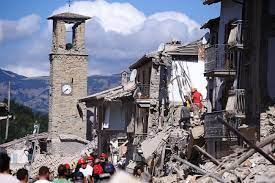
Former Vice President Atiku Abubakar has weighed in on the recent wave of defections from the Peoples Democratic Party (PDP) to the ruling All Progressives Congress (APC), asserting that the upcoming 2027 presidential election will not be determined by party lines but by a growing public opposition to President Bola Tinubu’s administration.
Atiku made the remarks in a statement released on Friday, shortly after high-profile political figures—Delta State Governor Sheriff Oborevwori and former Vice Presidential candidate Ifeanyi Okowa—formally switched allegiance to the APC. Their decisions have sparked conversations about the internal dynamics of the PDP and the shifting political landscape ahead of the next general elections.
“The 2027 election is no longer APC versus PDP or LP versus APC. It is Nigerians versus an administration that has inflicted so much hardship on the people,” Atiku said.
According to him, inflation is crippling families, jobs are disappearing, and youth restiveness is reaching alarming levels—signs that the average Nigerian has had enough.
“Nigerians are not just tired — they are angry, and rightfully so. This moment is about collective survival, not political labels.”
While he acknowledged that defections and political realignments are normal features of any democracy, Atiku emphasized that these should not distract from the broader issue—the alleged failure of the Tinubu government to deliver on economic recovery and national cohesion.
“Freedom of association and expression are not optional in a democracy; they are fundamental rights,” he said.
“Alongside these stand the pillars of a just society: the people, the rule of law, credible elections, and accountability. Undermine any of these, and democracy itself begins to crumble.”
Addressing criticism surrounding his recent visit to former President Muhammadu Buhari, Atiku cautioned against selective memory and political hypocrisy. He reminded Nigerians that political consultations ahead of major elections have always included leaders from across the spectrum.
“Let’s not rewrite history. Buhari is not only a former leader but a significant statesman in the Nigerian political landscape. During the 2013 opposition merger, leaders consulted widely, including visits to Obasanjo and Babangida. Why is it now an issue for me to visit Buhari in Kaduna?”
Atiku maintained that genuine democratic engagement requires mutual respect and open dialogue, regardless of political affiliation.
As 2027 draws closer, the former VP called on citizens to resist divisive tactics along ethnic, religious, or regional lines, describing such tools as “weapons of manipulation” used by political elites who have failed to offer meaningful solutions.
“The real enemy is not one another — it is the Tinubu administration’s abysmal failure,” he said bluntly.
With rising socio-economic challenges and growing dissatisfaction among citizens, Atiku’s remarks signal a clear intention to frame the 2027 race as a referendum on governance performance rather than party loyalty.





